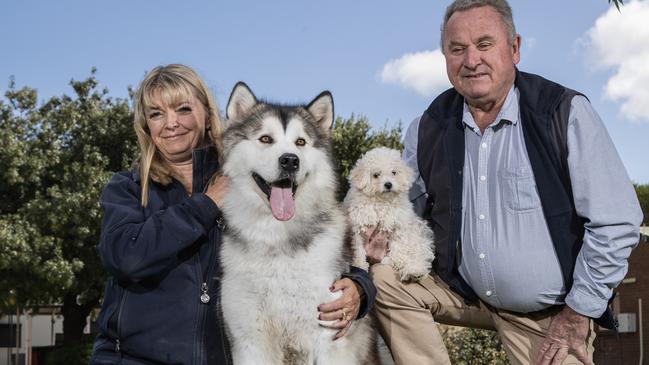Cancer breakthrough to help big dogs live longer
University of Adelaide scientists have cracked the code to help large-breed dogs live longer.
Pets and Wildlife
Don't miss out on the headlines from Pets and Wildlife. Followed categories will be added to My News.
Hope is at hand for large canine breeds, which may rule at the dog park but are left for dead in the longevity stakes.
Scientists have cracked the code to create happy and healthy large-breed dogs, which up to now have been let down by breeding flaws.
University of Adelaide experts examined the causes of differences in lifespan and death in 164 dog breeds, ranging in size from Chihuahuas to Great Danes.
“When we analysed these data sets, we discovered that larger dogs were more likely to die from cancer at a younger age when compared with smaller dogs,” Dr Jack da Silva, from the School of Biological Sciences, said.
“Larger dogs didn’t necessarily age faster than the smaller breeds, but the research did show that as the breed’s average body weight increased, so did the rates of cancer.”
To blame, Dr da Silva said, was the human desire for bigger and bigger dogs.
“We believe the relationship between a dog’s body size and their lifespan may be caused by an evolutionary lag in the body’s cancer defences, which are unable to keep up with the rapid and recent selective breeding of bigger dogs,” he said.
The study, which has been published in the journal The American Naturalist, found the shorter lifespans were consistent with a general theory of ageing known as “life history optimisation” or the “disposable soma”.

“This theory is based on the idea that if you invest most of your resources and energy into growth and reproduction, you can’t also invest them in cell repair and cancer defences,” Dr da Silva said.
The good news is that the study has also cracked the formula for longer life in larger dogs, who just need more cancer-fighting genes.
“Most of the 400 or so dog breeds we know today have only been established in the past 200 years,” Dr da Silva said.
“Larger dogs haven’t had time to evolve better cancer defence mechanisms to match their size.”
Dr da Silva predicts larger breeds will adapt and extend their lifespan but based on the theory of ageing, they’re more likely to have smaller litter sizes in the future.




